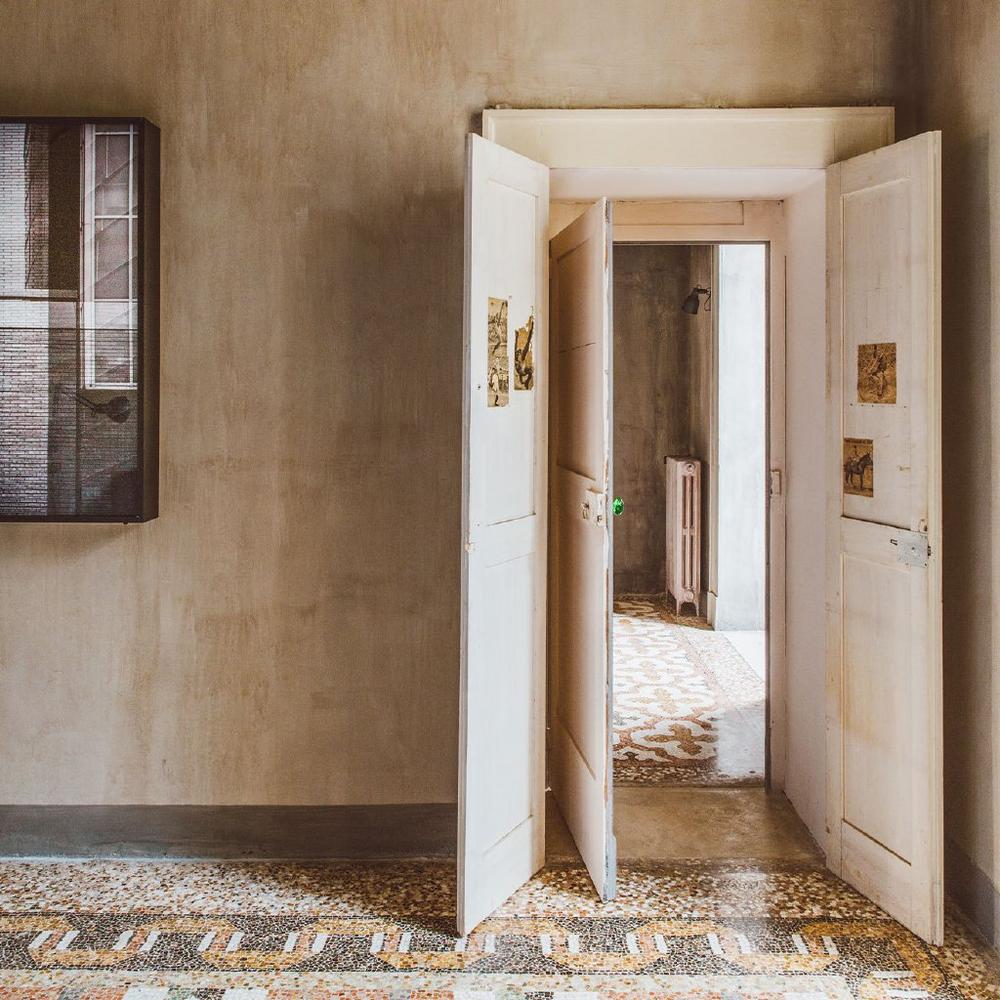In the center of Cologne stands a neo-gothic landmark building from 1897 that is now home to The Qvest Hotel. Original pointed arch windows and doorframes give way to a lobby and suites that feature cross-vaulted ceilings measuring up to six meters high, with the standout Salon Suite even boasting a hand-painted medieval wooden ceiling dating to 1390. Further south in Saarlouis, Germany, tradition meets modernity at La Maison Hotel. Here, rooms and suites are spread across a reimagined historic 19th-century city palace villa; a minimal modern extension with an anodized, folded-aluminum exterior; and a contemporary guesthouse with a wood façade. Each of these distinct structures are united by the vision of CBAG.studio, run by Saarlouis natives Christine Beaumont and Achim Gergen.
In northern Germany Tortue Hamburg is situated within an 1888 building originally erected for the city’s state ministry and later renovated and expanded by renowned architects David Chipperfield and Stephen Williams. Taking inspiration from French architectural traditions, the historic complex now includes a two-story addition and a rooftop terrace offering sweeping views of St. Michael’s Church and Hamburg’s harbor. A contemporary take on a historic space can also be found at Concepció by Nobis in Palma, leading with the ethos that “architecture is art”. Architectural firm Wingårdhs transformed a 16th-century setting into a welcoming world of brass and wood, where features like bespoke contemporary ceramic flooring coexist with authentic cross-vaulted ceilings.
In Dijon, France, architect Yvon Carminati reinstated the original renown of a Hausmann-style building from the late 1800s for Vertigo Hotel. A black and white color scheme dips its toes playfully into the gray zone with suspended beds, select Linge Roset pieces, and lighting by Hervé Langlais, while the on-site Embassy bar boasts a ceiling adorned with original stucco, walls lined with artworks in gilded frames, and elegant chandeliers. A similarly playful vibe fills New York City’s The Whitby Hotel, even if it’s not immediately obvious from the outside. The property’s architect Paul Taylor explains that it has “a quiet, understated architecture that fits seamlessly with the neighborhood, but the generously sized windows and numerous terraces offer glimpses of the activity and life within.” Indeed, the hotel’s limestone façade and steel-framed windows give way to an interior exploding with life and color designed by visionary Kit Kemp.
On the other coast of the United States, Timber Cove Resort in Jenner, California, makes a statement with its stunningly large A-frame structure designed by Richard Clements Jr., a devotee of Frank Lloyd Wright. More than being surrounded by the natural beauty of California’s cinematic coastline, the reanimated 1960s structure is tucked into a sandstone outcropping defined by Douglas fir posts and redwood elements. As Wright once said, “Stay close to nature. It will never fail you.”
Design Hotels™ represents and markets a curated selection of over 285 independent hotels in more than 60 countries across the globe. More than a collection of hotels, the company is a collection of stories. Each property reflects the ideas of a visionary hotelier, an "Original", someone with a passion for genuine hospitality, cultural authenticity, thought-provoking design and architecture. Each "Original" stands for the individual, aesthetic and service-driven experience that his or her hotel provides.
In 2017, Design Hotels™ launched Further, a traveling laboratory for experiential hospitality that transforms hotels across the globe into temporal hubs of thematic exploration. The mission behind Further aligns with the values of the future-facing Promad, a new generation of traveler embracing progressive travel and global nomadism. First identified by Design Hotels™ in collaboration with leading futures consultancy The Future Laboratory, the purpose-driven, self-actualizing Promadic movement is set to shape the future of hospitality.
Founded by Claus Sendlinger in 1993, Design Hotels™ offers its members insightful travel industry knowledge, from market trend consultancy to international sales representation. The company has its headquarters in Berlin and branches in London, Los Angeles, New York and Singapore. In 2019, Design Hotels™ joined forces with Marriott Bonvoy, enabling its member hotels to have both a greater and more selective reach while offering its Community the benefit of the industry’s leading loyalty program.
design hotels AG
Stralauer Allee 2c
10245 Berlin
Telefon: +49 (30) 884940-000
Telefax: +49 (30) 257698-96
http://www.designhotels.com
![]()
